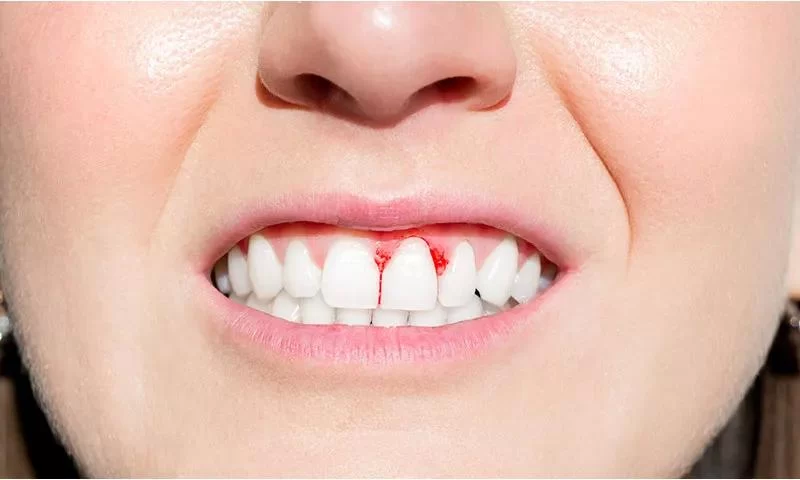
Why Do Your Gums Bleed When Brushing Your Teeth? Common Causes and How to Prevent It
- 1. What Causes Gums to Bleed When Brushing?
- 2. Gingivitis and Other Gum Diseases
- 3. How to Improve Oral Hygiene and Prevent Gum Bleeding
- 4. Treatment Options for Bleeding Gums
1. What Causes Gums to Bleed When Brushing?
Many people notice their gums bleeding when brushing their teeth. This can be alarming, but in many cases, it is a sign of poor oral hygiene or an underlying condition. The bleeding typically happens when plaque and tartar build up on the gumline, causing irritation and inflammation. It's important to address this early to avoid further complications.
2. Gingivitis and Other Gum Diseases
One of the most common reasons for gums bleeding is gingivitis, an early stage of gum disease. Gingivitis occurs when plaque builds up and irritates the gums, causing them to become swollen, red, and bleed easily. If left untreated, it can progress to periodontitis, a more serious form of gum disease that can lead to tooth loss.
However, bleeding gums may also indicate other issues, such as vitamin deficiencies, hormonal changes, or certain medical conditions like diabetes. In some cases, medications that thin the blood can also make your gums more susceptible to bleeding.
3. How to Improve Oral Hygiene and Prevent Gum Bleeding
The good news is that bleeding gums can often be prevented with a few simple changes in your oral care routine. Here are some tips to help:
- Brush your teeth twice a day using a soft-bristled toothbrush to avoid irritating your gums.
- Floss daily to remove plaque between your teeth, where a toothbrush can't reach.
- Use an antimicrobial mouthwash to help reduce bacteria in your mouth.
- Visit your dentist regularly for cleanings and checkups to remove built-up plaque and tartar.
By incorporating these habits into your daily routine, you can help prevent your gums from bleeding and improve overall oral health.
4. Treatment Options for Bleeding Gums
If your gums continue to bleed despite improving your oral hygiene, it's important to seek professional help. A dentist can diagnose the underlying cause and recommend appropriate treatments. In cases of gingivitis, a deep cleaning may be required to remove tartar buildup and bacteria. Your dentist may also suggest special mouth rinses or toothpaste designed for gum health.
For more serious gum diseases like periodontitis, more advanced treatments such as scaling and root planing or even surgery may be needed. Early intervention is crucial to prevent further damage and restore gum health.
If you're experiencing bleeding gums, don't ignore it. Take action by improving your oral hygiene and consulting with a dental professional.
For more information on how to prevent and treat bleeding gums, visit Dentistry Toothtruth and explore our range of dental care products designed to improve gum health.







 Surprise Endodontics4.0 (170 review)
Surprise Endodontics4.0 (170 review) Anchor Endodontics4.0 (48 review)
Anchor Endodontics4.0 (48 review) Tigard Modern Dentistry4.0 (169 review)
Tigard Modern Dentistry4.0 (169 review) Reflections Dental4.0 (542 review)
Reflections Dental4.0 (542 review) Dentistry for Children - Peachtree City4.0 (780 review)
Dentistry for Children - Peachtree City4.0 (780 review) Rainbow Dental Care4.0 (91 review)
Rainbow Dental Care4.0 (91 review) The Importance of Oral Health Education During Pregnancy for a Healthy Pregnancy
The Importance of Oral Health Education During Pregnancy for a Healthy Pregnancy Best Tips for Brushing Your Teeth Properly for Healthy Gums: Essential Techniques for Oral Health
Best Tips for Brushing Your Teeth Properly for Healthy Gums: Essential Techniques for Oral Health Why Skipping Dental Checkups Can Lead to Bigger Oral Health Problems
Why Skipping Dental Checkups Can Lead to Bigger Oral Health Problems Advantages of Porcelain Dental Restorations
Advantages of Porcelain Dental Restorations How Can Diabetes Cause Tooth and Gum Problems? Preventing and Managing Oral Health Issues
How Can Diabetes Cause Tooth and Gum Problems? Preventing and Managing Oral Health Issues Healthy Habits for Promoting Good Oral Health and Hygiene: Tips for a Healthy Smile
Healthy Habits for Promoting Good Oral Health and Hygiene: Tips for a Healthy Smile